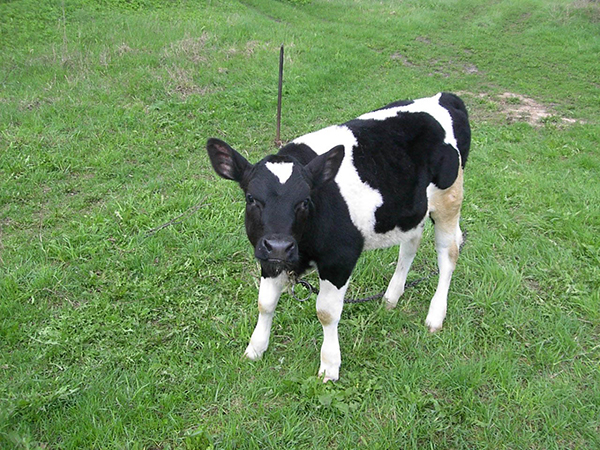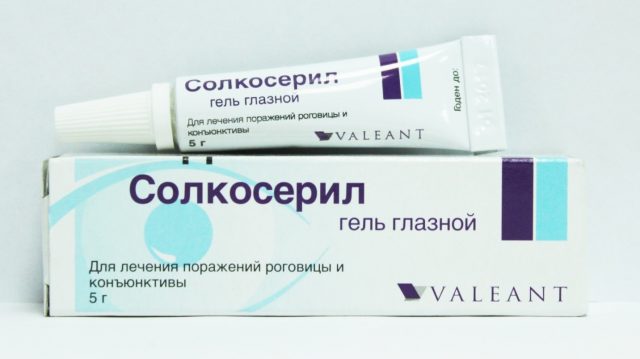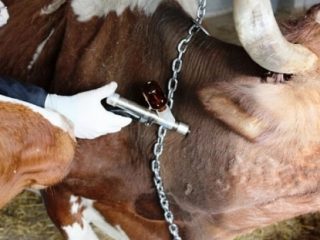Content
Deproteinized hemoderivative of calf blood is a preparation of biological origin, which is used in the complex treatment of metabolic disorders in the brain, diabetes and vascular pathologies. The basis of hemoderivat is an extract from processed tissues and blood of dairy calves. The drug is recommended for use after consulting a doctor.
As a medicine deproteinized hemoderivative of calf blood is used in China, South Korea, as well as in Russia and the CIS countries. In the United States and Canada, calf dialysate is included in the list of prohibited drugs, as the product has not been subjected to in-depth scientific research.
What is deproteinized hemoderivative of calf blood
Deproteinized hemoderivat is a highly concentrated extract of tissues and blood of dairy calves. In particular, the blood plasma of young healthy calves is used as a basis for the preparation. During production, the protein is separated from the raw material by superfiltration and dialysis, resulting in a saturated whey containing many useful substances:
- glycoproteins;
- amino acids;
- nucleotides;
- oligopeptides.
The hood is also distinguished by a high concentration of low molecular weight bonds.
A prerequisite for the creation of a preparation based on deproteinized dialysate from the blood of dairy calves was at one time assertions that young dairy-type calves quickly recover after receiving minor wounds. Such a rapid healing of the skin after burns and mechanical injuries attracted the interest of scientists from different countries, which marked the beginning of a number of studies. Ultimately, a little-studied element was found in the blood plasma of calves that stimulates accelerated tissue regeneration. It is he who is the main active component of deproteinized hemoderivat.
Efficacy of the Calf Blood Medicine
The effect of deproteinized dialysate from the blood of calves is due to the high content of low molecular weight substances with a small mass. The chemical composition of the drug promotes the activation of metabolic processes in the human body, namely:
- stimulates the flow of oxygen into cells;
- accelerates the absorption of glucose;
- enhances blood circulation.
According to official figures, deproteinized dialysate from calf blood has the following effects on human health:
- optimizes energy-intensive tissue repair processes;
- normalizes the acid-base balance of the epidermis when applied externally;
- has an antihypoxic effect;
- stimulates the activity of enzymes of oxidative phosphorylation;
- accelerates the metabolic processes of saturated phosphates;
- promotes the accelerated breakdown of lactate and beta-hydroxybutyrate;
- increases tissue trophism;
- improves the conductivity of nerve endings.
Forms of issue
Currently, deproteinized hemoderivative of the blood of calves is used for the manufacture of drugs such as "Solcoseryl" and "Actovegin". They do not have full-fledged analogues, but are interchangeable with each other.Pharmaceutical companies in Germany and Austria act as manufacturers of these drugs, which have been producing them since 1996.
Calf blood dialysate preparations are produced in the following forms:
- pills;
- creams and ointments;
- eye gel;
- ampoules with a solution for internal injection (into muscle tissue, vein or artery);
- infusion solution.
Indications for use
Calf blood dialysate preparations are prescribed mainly for the healing of burns (sun, steam, acid, thermal), deep scratches, bruises, cuts and abrasions. At the same time, at the first stage of treatment, it is recommended to first use a gel to scar the lesions, since it does not contain fat, after which an ointment can be applied to the wound when it begins to dry out.
Also, the use of funds based on deproteinized hemoderivative of the blood of calves is indicated for:
- complex treatment of metabolic and vascular disorders of the brain (circulatory failure of the brain and peripheral vessels, traumatic brain injury, consequences of brain tissue damage, ischemic stroke, dementia, extensive cerebral hemorrhage);
- peripheral arterial and venous diseases and treatment of their consequences - trophic ulcers, angiopathy, weeping eczema;
- inflammation of the mucous membranes;
- diabetic polyneuropathy;
- prevention and treatment of bedsores in bedridden patients;
- pretreatment of damaged surfaces before organ or tissue transplantation;
- dermatitis;
- dementia;
- damage to the cornea and sclera;
- the first signs of radiation sickness for the prevention and treatment of mucous membranes and skin after intense radiation exposure;
- endarteritis;
- psychosis;
- diabetic gangrene;
- apoplexy;
- vascular insufficiency with complications.
In addition, products based on deproteinized dialysate from the blood of dairy calves have a number of contraindications, namely:
- swelling of the lungs;
- decompensated heart failure;
- individual intolerance to the component;
- oliguria;
- fluid retention in the body;
- anuria.
The dosage of deproteinized calf blood dialysate is calculated individually, depending on the severity and symptoms of the disease. Most often, doctors prescribe daily intravenous injections of the drug in a volume of 5 to 10 ml. The course of treatment with hemoderivatum of the blood of calves is on average 1-1.5 months. An allergic reaction test should be performed prior to intravenous dialysate-based administration. For this, 1-2 ml of the drug is injected into the muscle tissue.
In case of burns and mechanical damage, an increased dose of the drug is recommended - from 10 to 20 ml intravenously every day until complete healing.
Side effects and contraindications
The field of application of the deproteinized hemoderivative of the blood of calves is quite extensive, which is due to the fact that the basis of the drug is made up of natural biological components. On the other hand, this does not mean that blood dialysate drugs do not cause side effects.
External and internal use of "Actovegin" or "Solcoseryl" can cause the following body reactions:
- skin rash;
- hyperemia of the skin;
- hyperthermia up to anaphylactic shock;
- hives;
- slight swelling when applied externally;
- fever;
- intense headache;
- general weakness, lethargy, lethargy;
- nausea, vomiting;
- pain in the region of the heart;
- heart palpitations;
- stomach upset;
- increased sweating.
Separately, it should be noted that after external application of calf blood dialysate in the form of gels and ointments, there is often a slight burning sensation and itching at the point of contact of the drug with the skin. Painful sensations pass on average after 10-15 minutes and are not a symptom of individual drug intolerance. The use of hemoderivative of the blood of calves soon after drinking alcohol can provoke a neutralization of the therapeutic effect.
Worldwide use
Deproteinized hemoderivative of calf blood is used for the production of drugs such as "Actovegin" and "Solcoseryl". Most of the manufactured drugs fall on the Russian market and the CIS countries - about 60-70% of the total. Also, the drug is purchased in large quantities by China and South Korea.
In the USA, Canada and Western Europe, deproteinized calf blood dialysate is prohibited for sale. The prohibition was based on insufficient knowledge of the pharmacological properties of the drug.
In addition, you can learn more about the features of using drugs based on calf blood dialysate from the video below:
Conclusion
Deproteinized calf blood hemoderivat is a drug with rather controversial reviews. It is extremely popular in Russia, Asia and the CIS countries, however, the import of calf blood dialysate into Canada and the United States has been banned for many years. The biological nature of this drug makes it difficult to fully study all of its properties, however, a number of effects on the human body have been scientifically proven. In particular, calf blood hemoderivat really promotes the healing of wounds and burns of various types.
Neither Actovegin nor Solcoseryl is prescribed as the main agent for the treatment of any disease - these drugs are used as an integral element of therapy in complex treatment.










